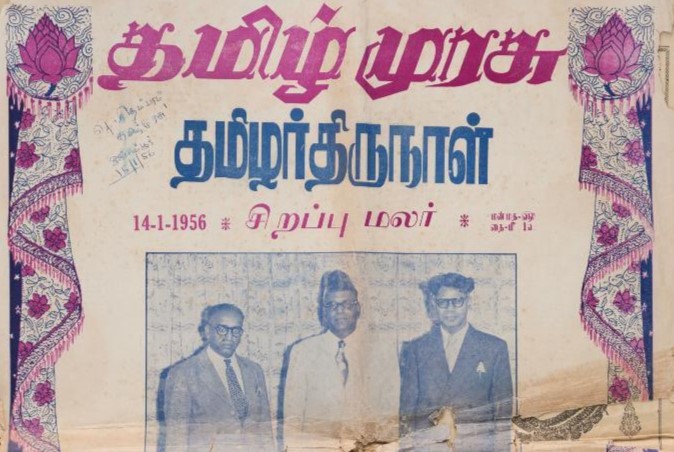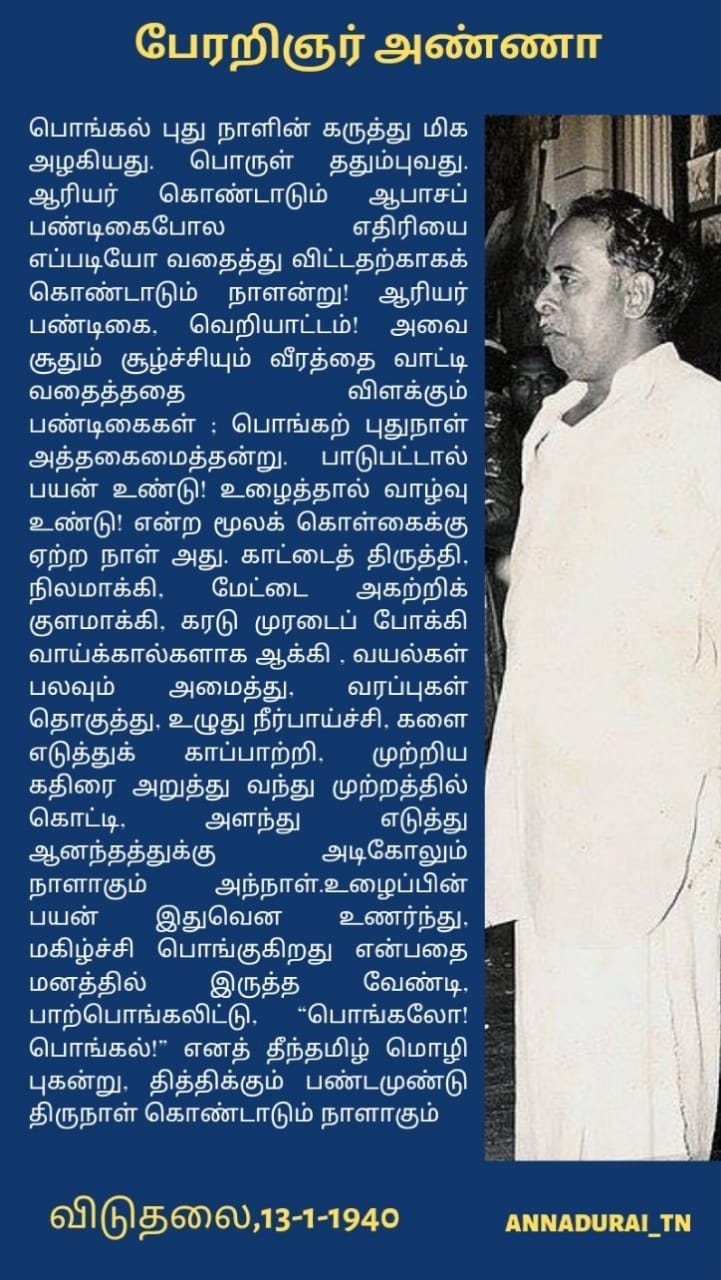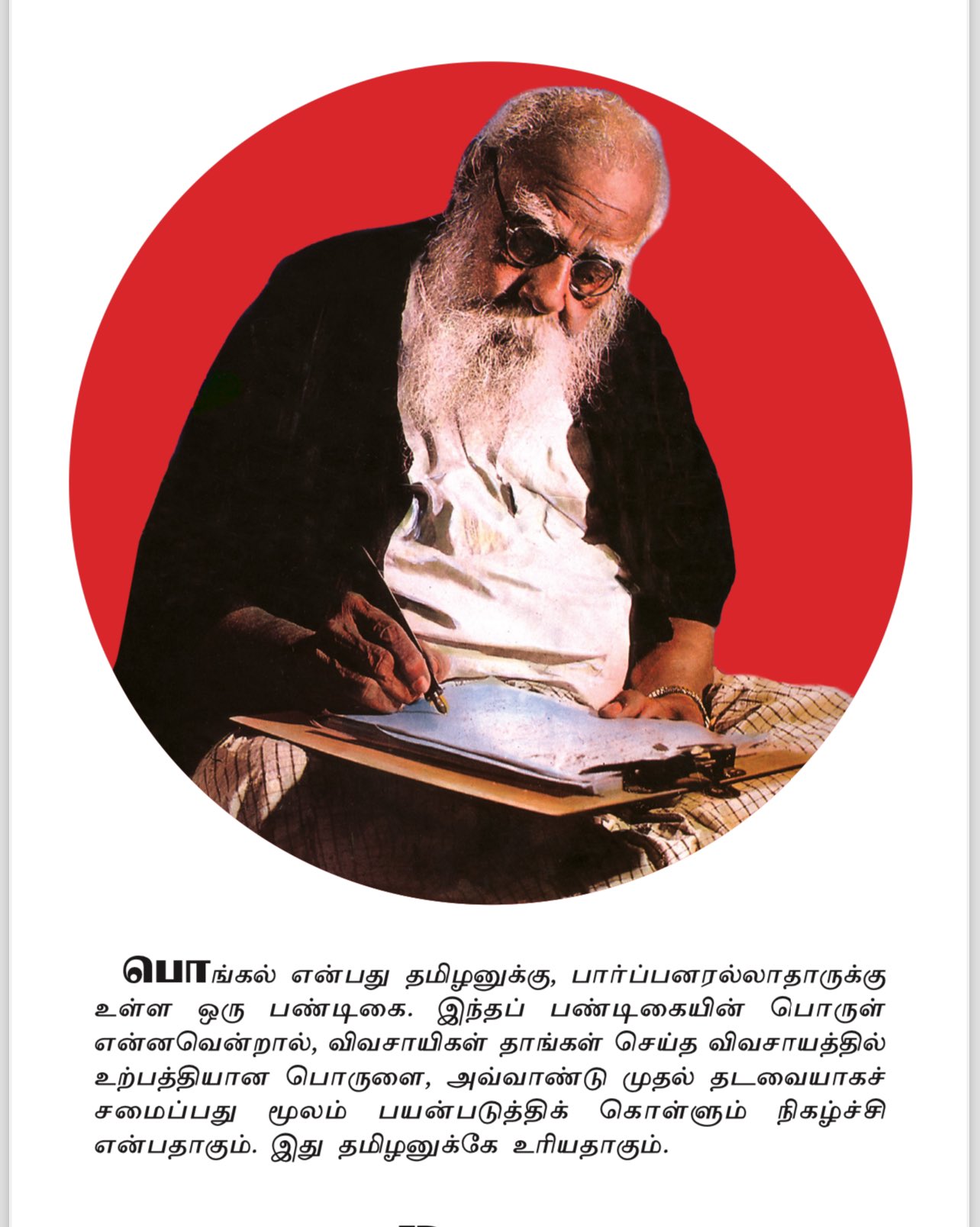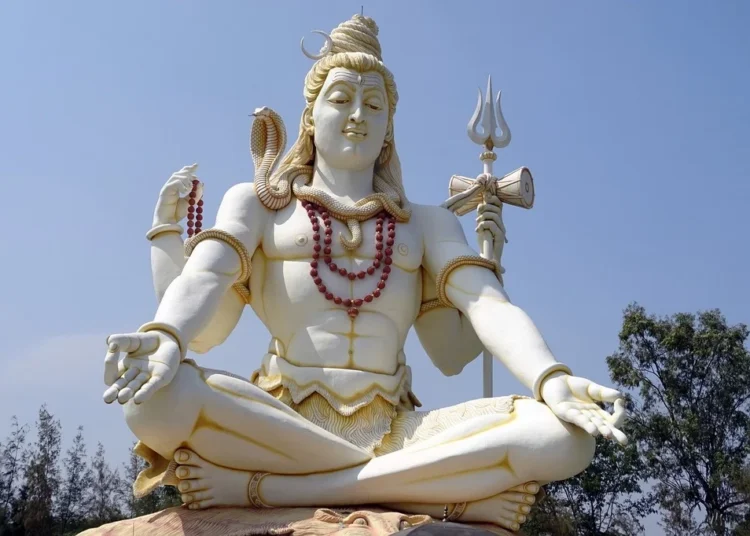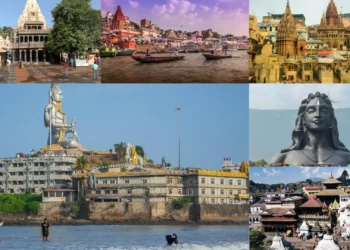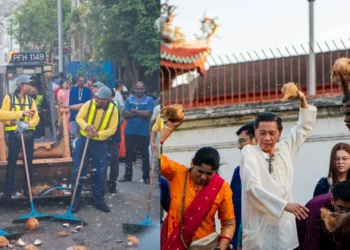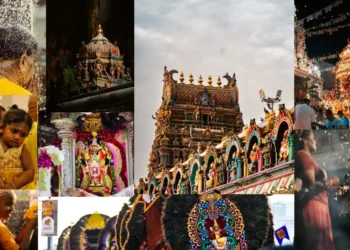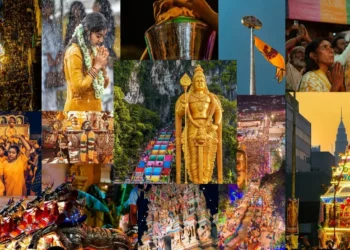While Pongal is more popularly symbolised with overflowing pots of sweet Pongal, this simplistic and commercial aesthetic shrouds the festival away from its secular and radical roots. At the very centre of this harvest festival is the celebration of Tamil labour and the wealth of the Tamil Motherland. This festival has been wielded by progressive, democratic, and revolutionary Tamils as a weapon against the cultural hegemony imposed by the North Indian Vedic ideology and the caste hierarchy within Tamil society, and it places the Tamil labourer and Tamil labour at the forefront of Tamil cultural expression. The cultural richness and vitality of Tamil would cease to exist without the contributions of the revolutionary working-class Tamils, who till today are the ones who unrelentingly struggle to liberate Tamil from the shackles of counter-revolution.
The Dravidian Movement and the Communist movement in Tamil Nadu birthed some of the most thought-provoking politicians, thinkers, and literary icons who not only aided in modernising Tamil identity and culture but also in unearthing and preserving the sanctity and vitality of ancient Tamil cultural expressions, such as Pongal. Dravidian ideologists such as Periyar and C. N. Annadurai have seen the secular celebration of Pongal as a resilient Tamil festival that stood against the cultural imposition of North Indian Vedic traditions. Annadurai expresses that Pongal is unlike the idealist Aryan festivals that celebrate the death of the enemy, but is a festival that is rooted in the material labour of people. Annadurai analysed and presented the Pongal festival as one that is rooted in the spirit of the Tamil land and the resilient soul of her children, the labouring Tamil people. Before the parasite of caste corrupted Tamil society, land belonged to all, but through the development of caste-feudalism in the Tamil lands, some Tamils were made slaves and landless while other Tamils and Brahmins ruled over them. It was against this structure that the Dravidian movement and the Communist movement, through all their shortcomings, necessary criticism, and ultimate disappointments, weaponized the festival of Pongal as a radical movement of reclamation and liberation.
Puratchi Kavignar Bharathidasan, another brilliant literary figure who emerged through the Dravidian movement, had written a poem about how Tamil New Year falls in the month of Thai, on the day Pongal is celebrated. His gripping poem is layered with Tamil poetic richness, the fighting spirit against the cultural and political imposition of the North, along with a deep and undeniable patriotism and integrity for his land, language, and identity.
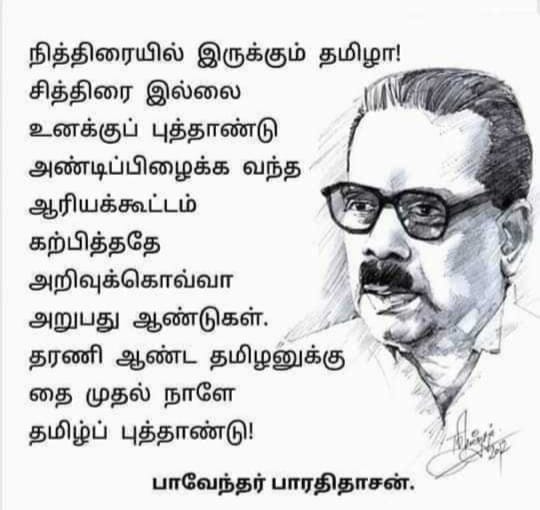
Pongal belongs to all Tamils, regardless of their religion. A true child of the Tamil soils will fight to their dying breath for the liberation of this beautiful and historical culture, land, and language. It is not merely enough to simply adorn yourself in sarees and veshtis, tie sugarcane outside your houses, and eat Pongal comfortably in your homes. One who truly cares for Tamil must think of their brothers and sisters, think of the many hierarchies and apartheids in the Tamil community because of caste and religion, and take action against these heinous partitions. Tamil, and all that is truly born from her revolutionary womb belongs only to those of her children who struggle unwaveringly for equality, freedom, and a just world.
Follow us on Instagram, Facebook or Telegram for more updates and breaking news.


